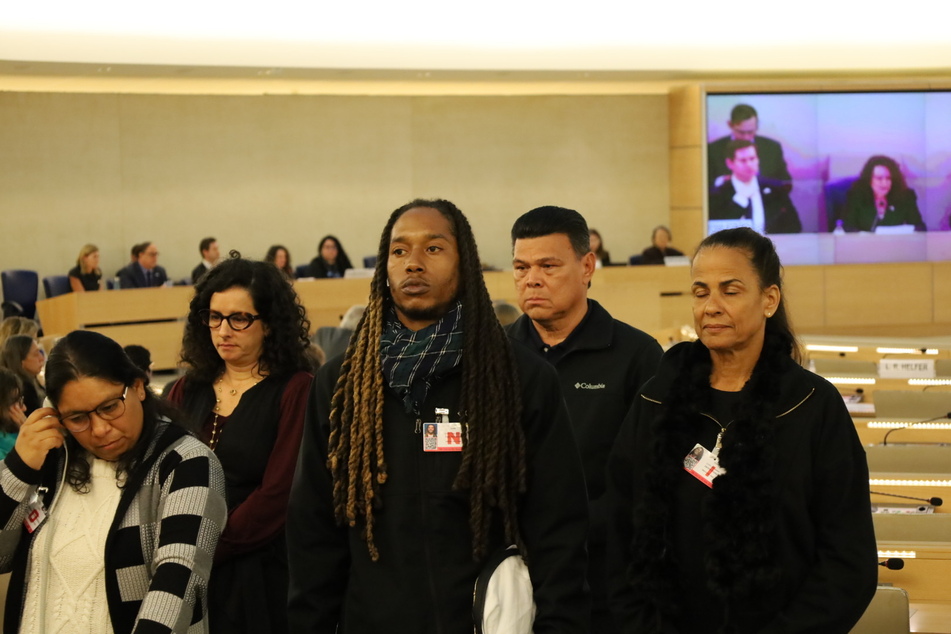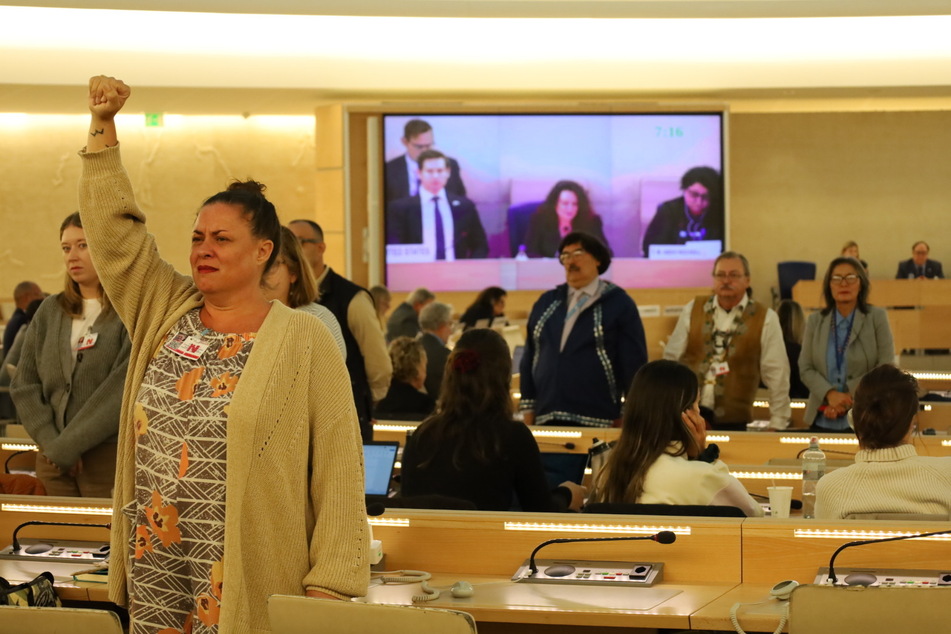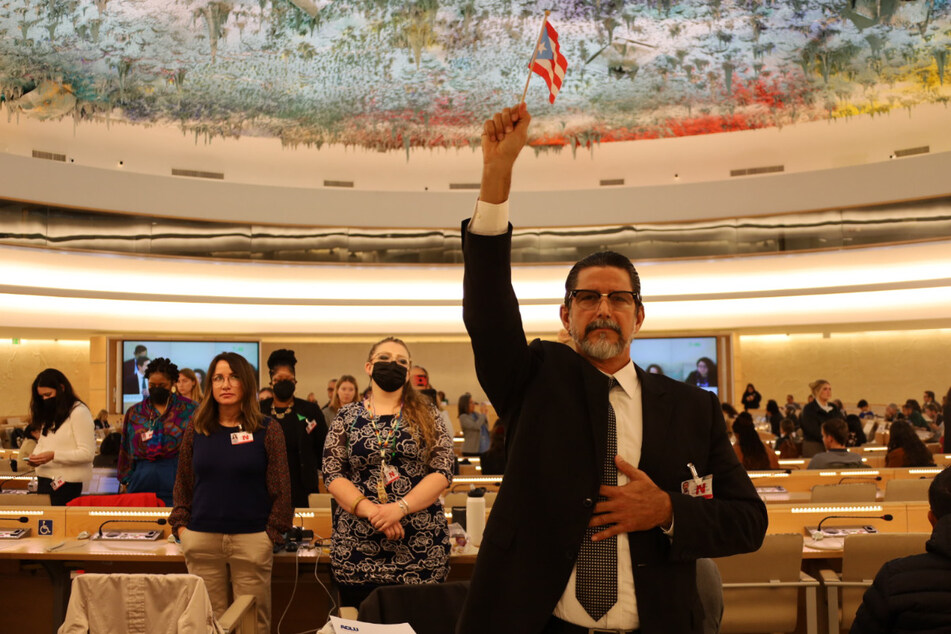Human rights advocates turn their backs on US officials in silent protest at United Nations
Geneva, Switzerland - Human rights advocates at the United Nations sent an unmistakable message to the Biden administration on Thursday that it must do more to address critical human rights abuses across the country.

As Ambassador Michele Taylor made her final remarks at the end of the UN Human Rights Committee's two-day review of the United States, activists and advocates from a wide range of social and racial justice movements stood up and turned their backs in silent protest.
"We've crossed an ocean because the US justice system, laws, and policies have failed us," said Alliance San Diego Executive Director Andrea Guerrero, adding that she was "deeply disappointed" by the US' approach to the review.
Guerrero is a member of the 16-member Start With Dignity delegation from the US-Mexico borderlands fighting to end police violence in communities of color and update use-of-force standards for law enforcement. The group earlier this week led a walkout at the US Mission in Geneva calling for real solutions to structural problems plaguing communities around the nation.
Frustration continued to mount throughout the US review. Civil society representatives had spent time, money, and emotional energy to share personal stories of pain and trauma on the world stage, while it felt to many like the US delegation was repeating pre-prepared talking points in response to committee questions.
"We all feel deceived by a government that has said it is going to do better than the administrations before it, but has simply just repeated language out of binders they brought and websites they read and did not meaningfully engage in the topics we had shared with them," Guerrero explained.
"Their words are meaningless without actions," she added. "Actions speak louder than words. That's why we turned our backs today."
Starting with dignity

Although US officials' responses left a lot to be desired, many advocates felt members of the Human Rights Committee had listened and taken their experiences into account.
Activists plan to take that momentum to keep pushing the boundaries of what is considered possible for historically marginalized communities back home.
"For too long, we've been told the most you can hope for is what you can interpret out of the US Constitution. We now see the US Constitution as the floor, not the ceiling, for what we deserve as human beings with inherent dignity," Guerrero said.
"We look forward to what we hope will be damning set of conclusions that will say that the laws and policies that were just repeated here by the US government are themselves the problem."

The Human Rights Committee's concluding observations and recommendations are set for release on November 3, 2023.
Cover photo: Kaitlyn Kennedy
